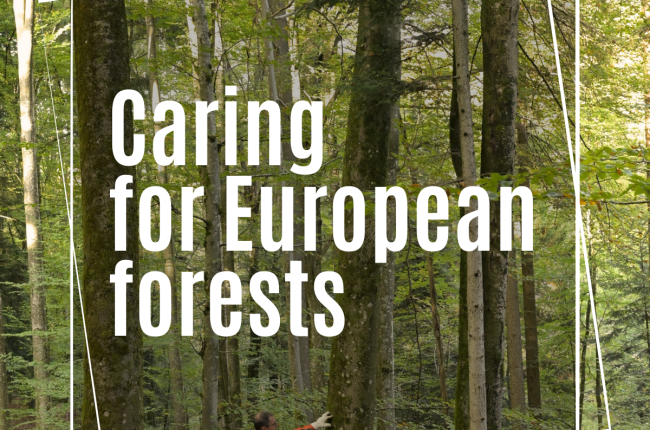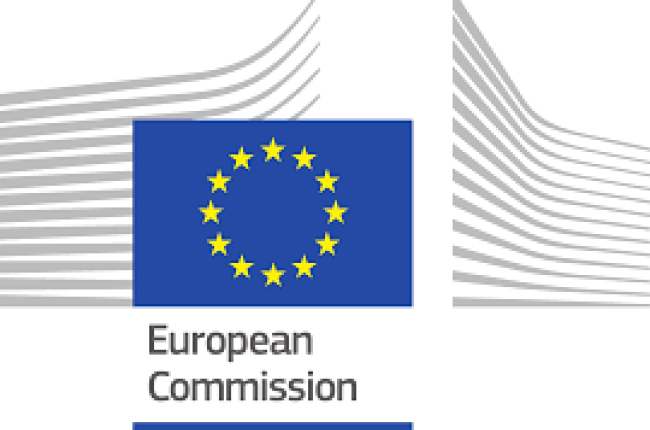In July 2021, the European Commission adopted the EU Forest Strategy for 2030, one of the flagship initiatives of the European Green Deal. The European Council and European Parliament reacted to this proposal and raised some key points regarding the actions included in the Strategy and their implementation. European forest owners and managers have expressed their views on the Strategy’s approach and asked for greater consideration to be given to the diverse and complex needs of forest management, realities on the ground and what forest owners and managers have achieved to date. I this context, the aim of the seminar was to offer opportunity for exchange between institutions and relevant stakeholders.

The seminar was opened by a welcome speech by Barbara Schretter, Director of the Representation of the Free State of Bavaria. After this key messages on main priorities in the implementation of the new EU Forest Strategy where presented by Silvia Michelini, Director at the European Commission’s DG AGRI, Linda Reinholdsson, Desk Officer at the Ministry of Rural Affairs and Infrastructure, representing the Swedish EU Council Presidency, MEP Ulrike Müller (Renew), rapporteur for AGRI Committee’s opinion on the EUFS, and Simo Tiainen, Director of MTK (Finland), rapporteur for EESC opinion on the EUFS.
Following the opening speech and key messages from different institutions, discussions were held in three panels on specific topics:
Panel discussion I – What should be the aim of actions to be taken next on sustainable forest management (SFM) and closer-to-nature forest practices?
Speakers in the first Panel were Marco Onida, European Commission, DG ENV, Anke Schulmeister, WWF European Policy Office, Leire Salaberria, USSE and Nikolay Vasilev, Department on Strategies and Planning in Forestry, Ministry of Agriculture, Bulgaria. A lively and constructive debate was held on the most sustainable way to manage forests and on how to maintain forests’ capacity to provide their multiple services while meeting the increasing needs of society for forest products.
Panel discussion II – What is the future of EU Forest Governance?
The second Panel was composed of Gaëlle Marion, European Commission, DG AGRI, MEP Jessica Polfjärd, European Parliament (EPP), María Jesús Rodríguez de Sancho, Director General of Biodiversity, Forest and Deforestation Department, Ministry for the Ecological Transition and the Demographic Challenge, Spain, Martin Höbarth, Forest department, LK Österreich and Gert-Jan Nabuurs, Wageningen University and Research. The discussion revolved around how different stakeholders, including forest owners and managers, should be best involved in the implementation of the EUFS. and on relevant and reliable forests data needed at policy level.
Panel discussion III – What role will the forest sector play in achieving the EU’s environmental and climate objectives and what impacts may be seen in the sector as a result?
Speakers in the third panel were Silvia Melegari, CEI-Bois &EOS, András Szepesi, Forestry Department, Ministry of Agriculture, Hungary, Christian Holzleitner, European Commission, DG CLIMA, Damian Zielinski, Directorate General of the State Forests, Poland and MEP Carmen Avram, European Parliament, S&D, RO. Panellists highlighted a wide range of benefits through which forests contribute to the EU's climate and environmental goals, including the three essential ways (the 3 S’s): carbon sequestration, carbon storage in trees and wood products and carbon substitution. Discussions were held on carbon removals certification recently proposed by the European Commission, and on new financing methods proposed in the EUFS, such as Payments for Ecosystem Services.
In summary, the event provided a good opportunity for exchange between institutions and relevant stakeholders. A key take-away from the perspective of forest owners and managers is that the sector needs an effective governance framework and balanced policy approaches to further improve the sustainable management of forests in the EU. The input and concerns of those ultimately responsible for implementing these policies should be considered equally important.




